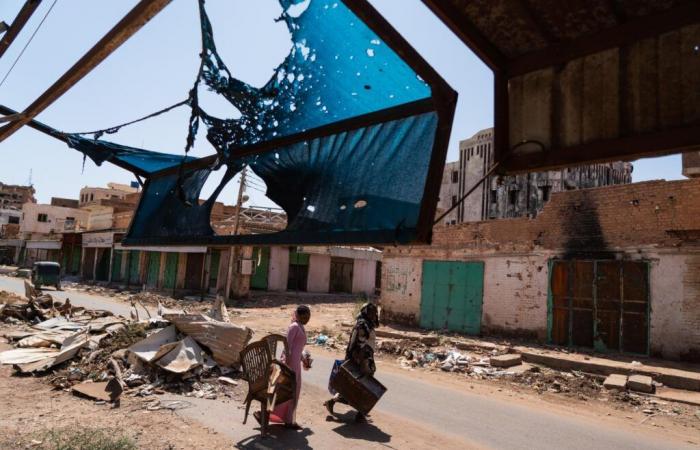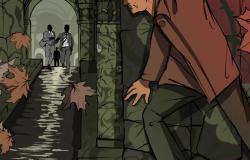Ct is undoubtedly the most devastating conflict of the moment, but it largely flies under the radar of diplomacy, the media and popular protests. The civil war in Sudan, to which The World devotes an exceptional series of eight articles, probably caused the death of more than 150,000 civilians due to the bombings and massacres, famine and epidemics that followed. It forced 13 million people, or nearly one in four inhabitants, to flee their homes. Our reports dramatically describe the ordeal of civilian populations, particularly women, caught in the fires of an absurd conflict between the two generals who, in 2021, together overthrew the democratic transition government, reducing to nothing the gains of the popular uprising in 2019 marking the fall of the Islamist dictatorship of Omar Al-Bashir.
Read episode 1 of our series | Article reserved for our subscribers War in Sudan: in Khartoum, devastated capital, death strikes at every street corner
Read later
For eighteen months, the armed forces of Sudan (FAS), led by General Abdel Fattah Al-Bourhane, and the paramilitary militias of the Rapid Support Forces (FSR), led by General Mohammed Hamdan Daglo, known as “Hemetti” , have dragged the country of 49 million inhabitants into a spiral of violence whose outcome no one foresees. The sources of this war appear social – resentment towards the elites who have monopolized power since independence in 1956 –, clan and ethnic. The FSR militiamen are the successors of the janjawids, from the nomadic Arab tribes of the west of the country, who participated, twenty years ago, in the genocide targeting the black populations of Darfur.
International rivalries
The conflict is also fueled by international rivalries fueled by the country's assets. Sudan is one of Africa's main gold producers and has a large coastline on the Red Sea, a major gateway for world trade. While the regular army benefits from support from Egypt, Saudi Arabia, Iran and now Russia, the FSR militias receive weapons from the United Arab Emirates.
See also infographic | Article reserved for our subscribers Sudan faces the risk of implosion
Read later
If the offensive launched since the end of September by the FAS has allowed them to regain ground in the capital, Khartoum, no military outcome is in sight. The men of General “Hemetti” – who does not himself take part in the fighting – control more than a third of the country and engage in atrocities of an unprecedented degree. Nothing in the current balance of power allows us to envisage that one of the belligerents could reconquer the entire country. The possible fall of El-Fasher, the capital of Darfur which they are besieging, would give them control of this region as vast as France and would raise the question of the unity of the country.
In fact, the conflict has entered a phase of total war for which civilians are paying the high price. The long nightmare of the Sudanese, punctuated by aerial bombardments, massacres, rapes, epidemics, bereavements, against a backdrop of humanitarian crisis, must end. This implies blocking the continuous flow of weapons which supplies the protagonists and resuming the path of mediation, abandoned in October.
But the international pressures which alone can bring Sudan back on the path to peace themselves require that public opinion stop accepting that this country is abandoned to its fate. It is common to cite Ukraine and the Middle East as the two current wars of greatest concern. The least we could do would be not to forget what is ravaging Sudan.
Also read the interview | Article reserved for our subscribers Clément Deshayes, anthropologist: “The conflict in Sudan constitutes the most serious humanitarian crisis in the world”
Read later






